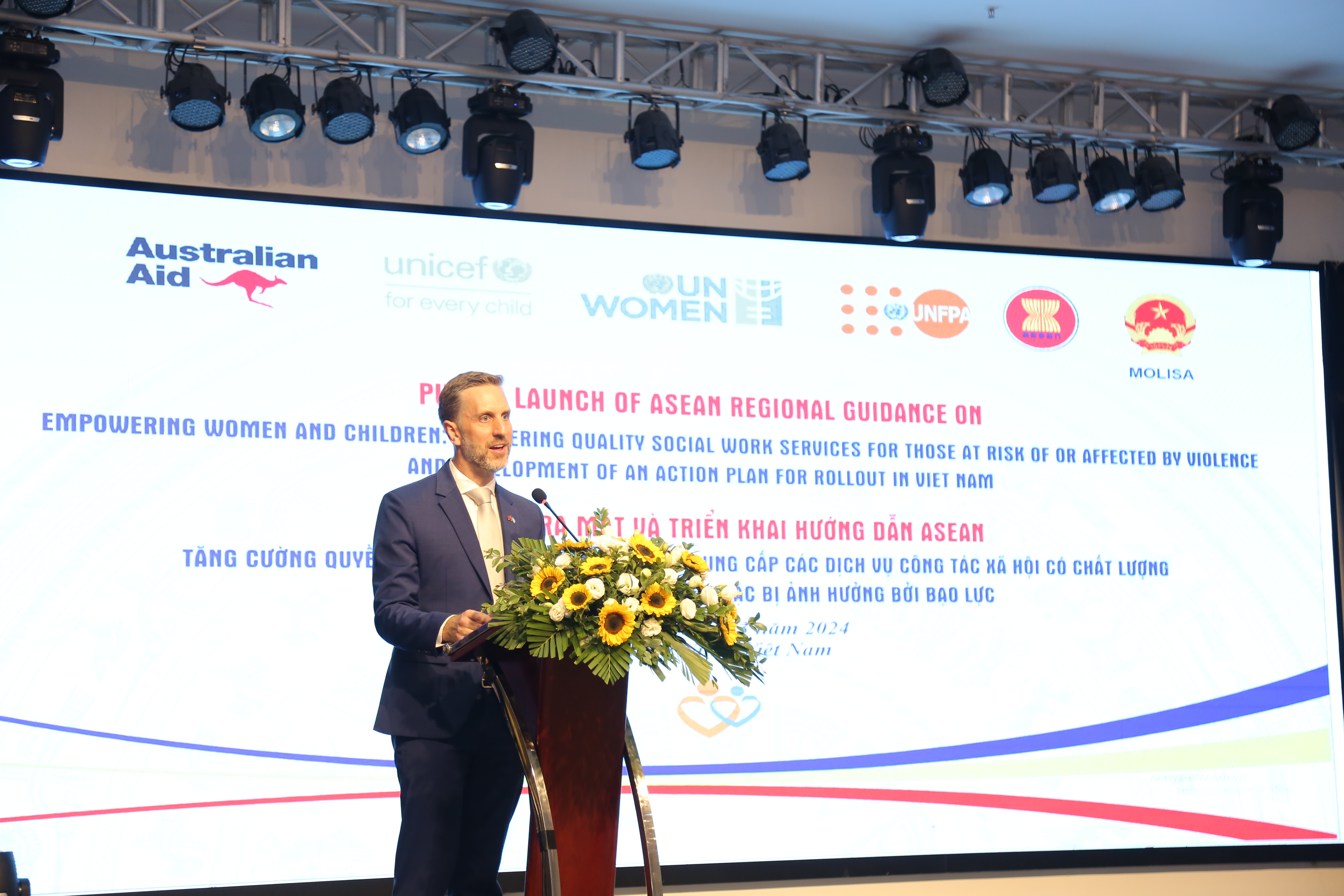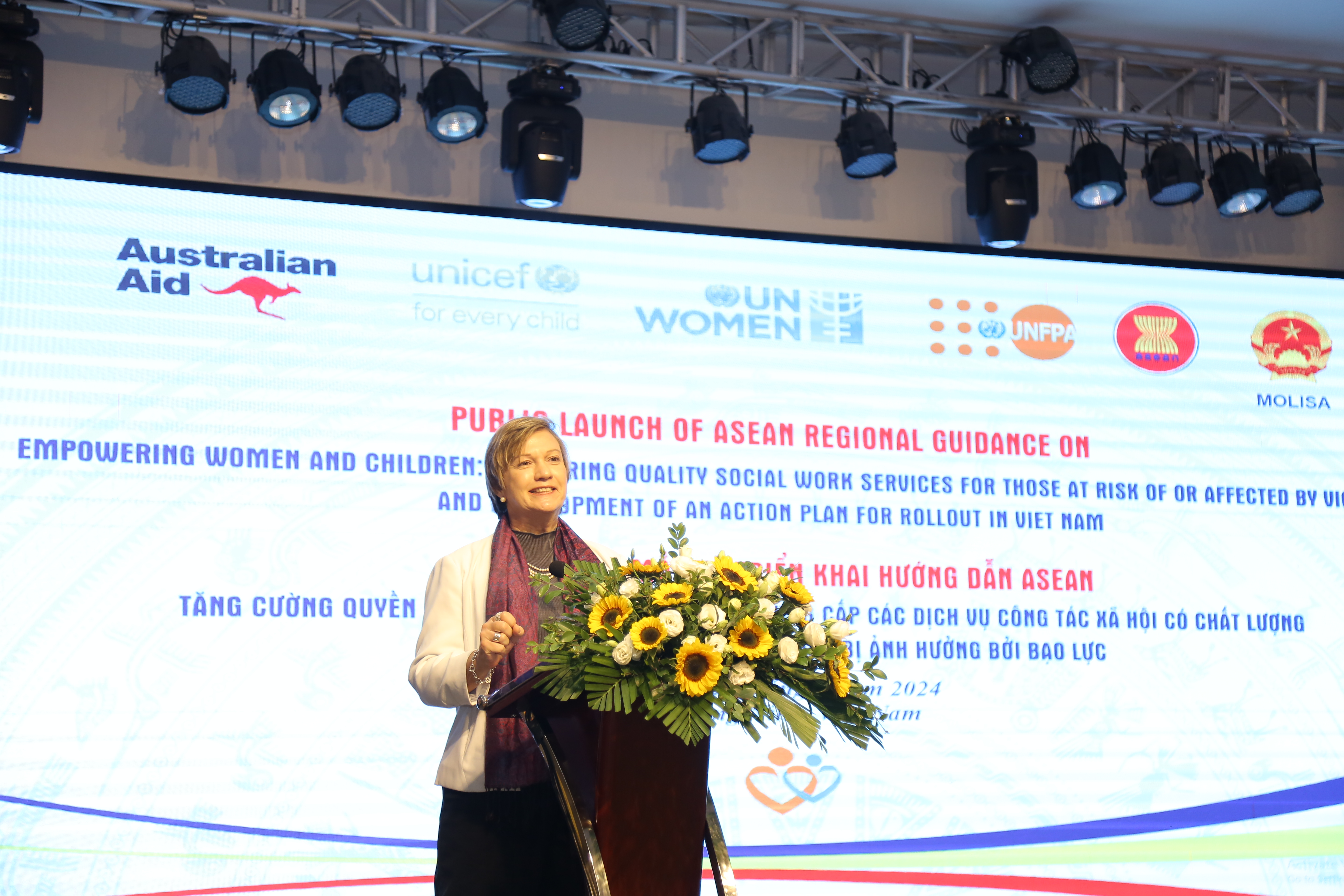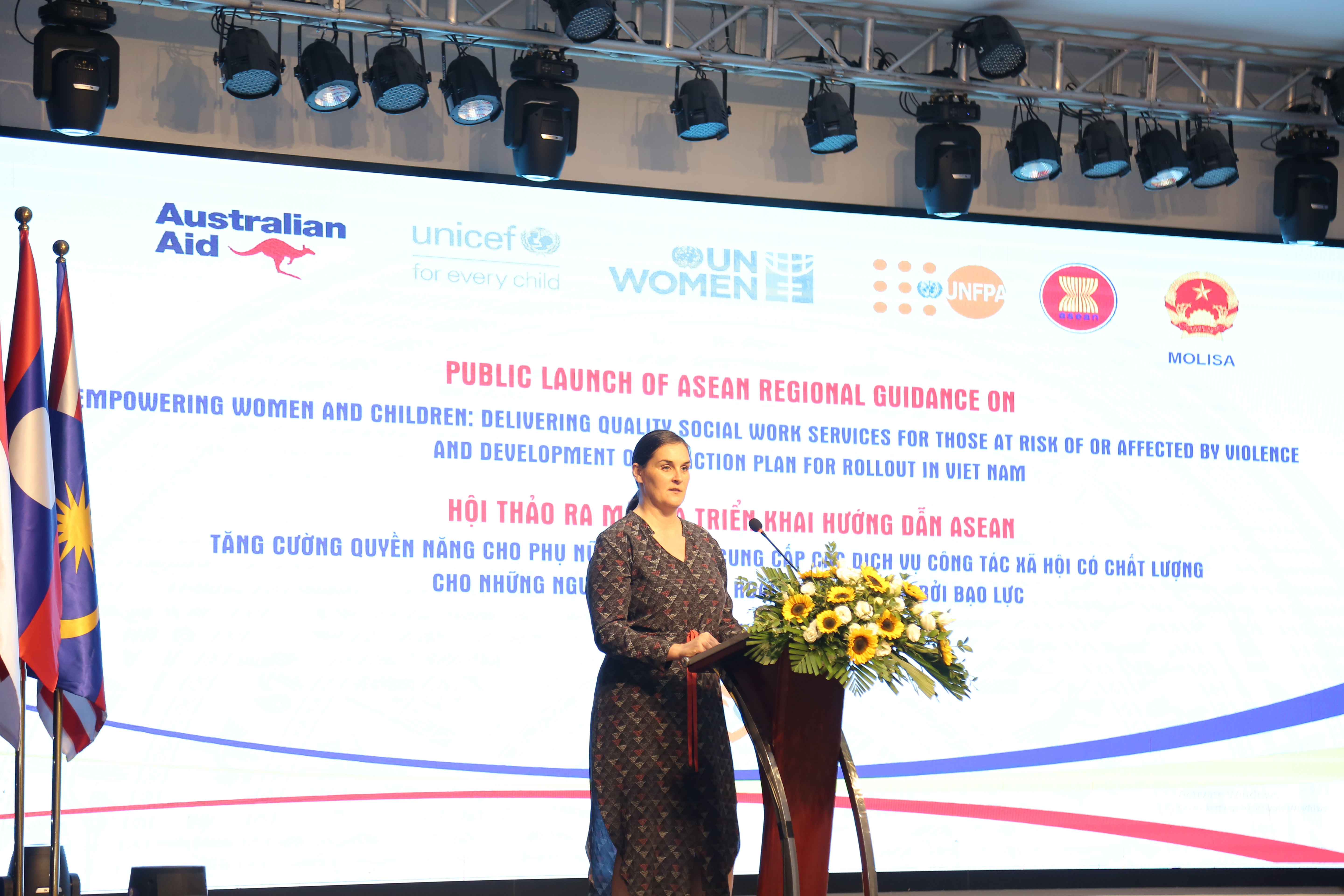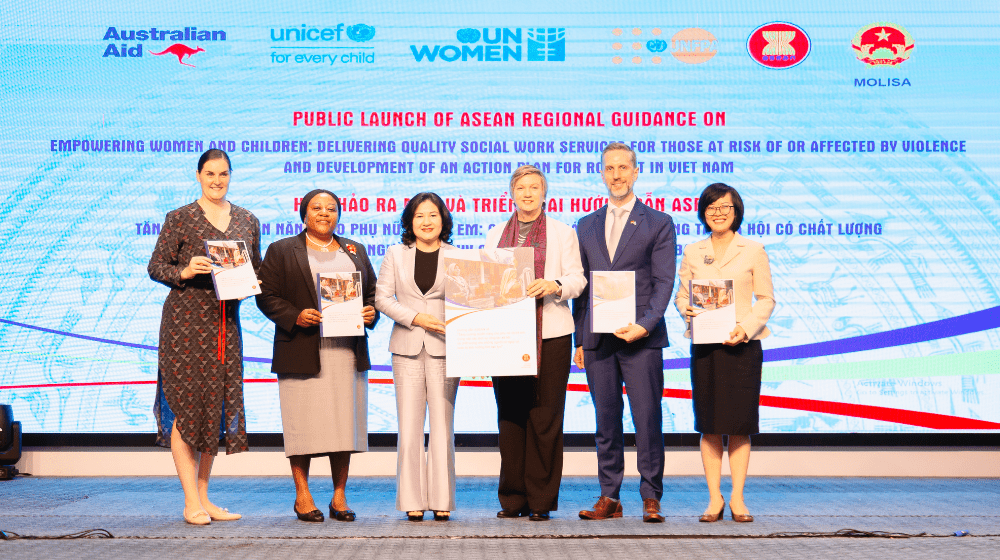Ha Long, Quang Ninh, 28 March 2024: Representatives from ASEAN Member States and UN agencies in Viet Nam, notably UNFPA, UNICEF and UN Women, have renewed their commitment to providing high-quality social services for women and children at risk of, or experiencing, violence.
The Ministry of Labour, Invalids and Social Affairs together with UNICEF, UNFPA and UN Women held a workshop in Ha Long city, Quang Ninh province on 28 March to publicly roll-out the ASEAN regional guidance on “Empowering women and children: Delivering quality social work services for those at risk of or affected by violence”, an important milestone towards increasing the prosperity, connectivity, resilience, and security of women and children of ASEAN member states.
Also present at the launch were some 100 representatives from other Government ministries and agencies, social workers and civil society as well as local media.

The ASEAN Regional Guidance is to support policymakers, managers, and members of the social service workforce and allied sectors in ASEAN member states to design and deliver quality social work services in this regard. It will also serve as a reference point for developing legislation, policies and tools to deliver quality social work services.
The Vice Minister of Labour, Invalids and Social Affairs, Ms. Nguyen Thi Ha stressed in her opening remark the significant role of the Guidance. She said: “This document guides ASEAN Member States to effectively implement the ASEAN Road Map for the 2020 Ha Noi Declaration on Strengthening Social Work Towards Cohesive and Responsive ASEAN Community; to enhance the social work system; to contribute to address and end violence against women and children; to inform policy-makers to design and provide quality social work services for those who are at risk or experiencing violence, especially women and children. The Guidance will also be used as reference for the development of legal framework, policies and tools to provide quality social work services.”

The UNFPA Representative in Viet Nam, Mr. Matt Jackson shared the workshop UNFPA’s commitment to supporting Viet Nam in addressing gender-based violence, including the replication of the social work center-based One Stop Service Center, commonly known as Anh Duong House to other provinces and cities. The model has successfully provided a wide range of services, meeting international standards including health care, counselling, social welfare services, emergency shelters, police protection, legal and justice services, and referrals.

Mr. Matt Jackson added: “With the replication of Anh Duong House, UNFPA wants to reach to more and more women and girls, who are experiencing and/or at risk of gender-based and domestic violence. UNFPA wants to ensure that all women and children in Viet Nam, including those most vulnerable, have the right to live a life free of violence and with dignity.”
For her part, the UNICEF Representative in Viet Nam Ms. Rana Flowers said: "For the past two decades, UNICEF has been supporting the development of social work in Viet Nam. Under the leadership of MOLISA, and with support from UNICEF, social work service centres and sections have been established in almost all provinces across Viet Nam. These locations are staffed with professionals who provide protection, support services, and referrals to thousands of children and women who are victims of domestic violence, human trafficking, and other forms of child abuse and exploitation. I congratulate the Government of Viet Nam on their leadership in the development of this invaluable Guidance. We honour our cooperation with ASEAN in the development of The Ha Noi Declaration on Strengthening Social Work Towards a Cohesive and Responsive ASEAN Community, which was passed by ASEAN in 2020 when Viet Nam was the chair, along with its ten-year implementation roadmap. We are committed to supporting the implementation of this strategic framework. UNICEF, along with our UN sister agencies, are proud partners of ASEAN. I look forward to seeing all member states roll out and implement the Guidance."

Also at the workshop, delegates from ASEAN Member States shared their experience and best practices on the provision of social services for survivors of violence and discussed the implementation of the regional guidance.
With support from UNFPA, UNICEF and UN Women, the Ministry of Labour, Invalids and Social Affairs presented Viet Nam’s plan of action to implement the Guidance as part of its efforts to increase the number of social workers and to ensure the provision of high - quality social services. These targets have set out in Viet Nam’s National Plan on the development of social work profession from the period 2021 – 2030 and the National Programme on renovation and development of social assistance system by 2025.
The workshop was held with the financial support from the Government of Australia. Ms. Majdie Hordern, First Secretary, Development Cooperation, Australian Embassy Vietnam highlighted the partnership between the Government of Australia and the UN agencies in Viet Nam, especially UNFPA, UNICEF and UN Women in ending gender-based violence against women and children. Ms. Majdie Hordern added: “Australia has made ending violence a priority domestically and in our overseas development assistance, because it endangers and diminishes the lives of women and children. It undermines the kind of societies that we can build and be. The ASEAN regional guidance launched today provides an important framework to inform the design and delivery of quality social work services. It recognises the valuable services social workers provide in our communities, supports the professionalisation of this vital workforce. We look forward to the roll out of this guidance over the coming year to improve the delivery of vital social work services across the region.”

As part of experience sharing, the participants made a tour of Anh Duong House in Quang Ninh to learn how social services have been provided to protect and respond to the needs of survivors of violence./.


